DNVN - Mr. Pham Chi Quang - Director of the Monetary Policy Department said that from the beginning of 2024 until now, VND has depreciated by about 5% compared to USD, similar to the depreciation trend of currencies in the region. However, all difficulties and challenges of the domestic foreign exchange market are only short-term.
Assessing the pressure on exchange rates and the foreign exchange market, Mr. Pham Chi Quang - Director of the Monetary Policy Department said that the State Bank of Vietnam (SBV) believes that since the beginning of 2024, the domestic foreign exchange market and exchange rates have been under pressure from unpredictable fluctuations in the global financial market, combined with challenges and difficulties in the domestic market in recent times.
Inflation remains high in the US, causing the international market to continuously adjust forecasts and postpone the expected date of the US Federal Reserve (Fed) interest rate cut. The market's change in expectations about the path of monetary policy (CSTT), the Fed's interest rate cut, along with increasing geopolitical tensions in some territories, has caused the international USD to increase sharply in value.
At one point, the USD index (DXY) increased by 5% compared to the beginning of 2024, creating devaluation pressure on other currencies, including VND.

Mr. Pham Chi Quang - Director of the Monetary Policy Department emphasized that the State Bank will manage exchange rates flexibly, in accordance with market developments.
Along with that, the economy 's import activities recovered strongly, estimated at 132.23 billion USD, an increase of 19.7 billion USD (up 17.5%) over the same period in 2023. This increased the demand for foreign currency, especially the demand for foreign currency to pay for the import of essential raw materials for domestic production.
In particular, the US's continued high USD interest rate and lower VND interest rate compared to international USD interest rates (negative interest rate differential between the two currencies) have made the balance of foreign currency supply and demand less favorable in the short term and put pressure on the exchange rate. Economic organizations promote the purchase of foreign currency for future payments, while customers with foreign currency income have the mentality of delaying the sale of foreign currency to credit institutions.
“Since the beginning of 2024, the VND has depreciated by about 5% against the USD, similar to the depreciation trend of currencies in the region. However, all difficulties and challenges of the domestic foreign exchange market are only short-term,” Mr. Quang commented.
According to the Director of the Monetary Policy Department, in the coming time, with the positive recovery of exports, the market's foreign currency supply will be supported to increase. Enterprises have increased their purchases of foreign currency in the recent past, which is a factor that reduces the demand for foreign currency in the future. Thereby, the balance of foreign currency supply and demand is likely to be improved more positively.
At the same time, the international financial community maintains its forecast that the Fed will likely cut interest rates by the end of 2024, which will reduce devaluation pressure on currencies around the world , including VND.
Based on domestic and foreign fundamental factors, many international organizations predict the possibility of VND appreciation again when these fundamental factors are gradually realized in the coming time.
Mr. Quang affirmed that in recent times, the State Bank has flexibly and synchronously operated monetary policy solutions and tools to closely follow market developments. That is, it has operated exchange rates flexibly, in accordance with market conditions, absorbing external shocks.
To support the stabilization of the foreign exchange market, ease pressure on the exchange rate in the context of relatively excess VND liquidity of credit institutions, and narrow the negative interest rate gap in the interbank market, the State Bank of Vietnam has issued treasury bills with appropriate terms to regulate the excess VND, and limit factors that increase pressure on the exchange rate.
The State Bank has sold foreign currency to intervene and support market liquidity to serve the legitimate foreign currency needs of the economy. Stabilizing market sentiment, thereby contributing to stabilizing the macro economy and controlling inflation.
The solutions to regulate liquidity and sell foreign currency intervention implemented by the State Bank are similar to the solutions deployed by central banks in the region in recent times.
“In the coming time, the State Bank will operate the exchange rate flexibly, in accordance with market developments. The Bank will continue to synchronously combine monetary policy tools with foreign currency sales to intervene in supporting market liquidity, serving the legitimate foreign currency needs of the economy,” said Mr. Quang.
Ha Anh
Source: https://doanhnghiepvn.vn/kinh-te/tai-chinh-ngan-hang/kho-khan-thach-thuc-cua-thi-truong-ngoai-te-trong-nuoc-chi-la-ngan-han/20240525094622042










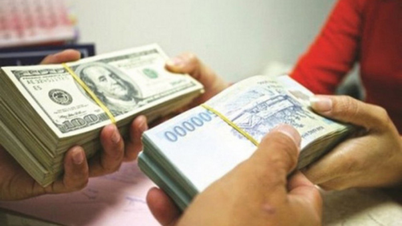

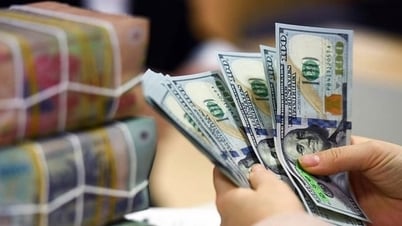
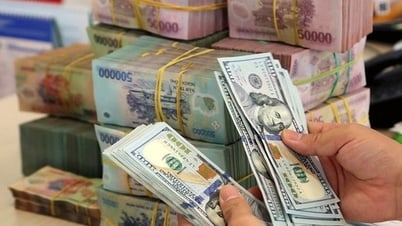
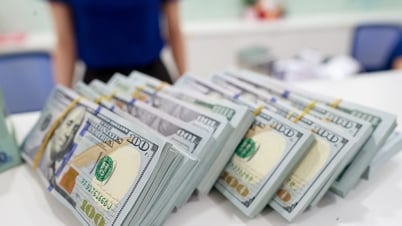









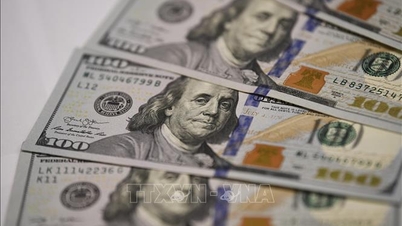
















































































Comment (0)